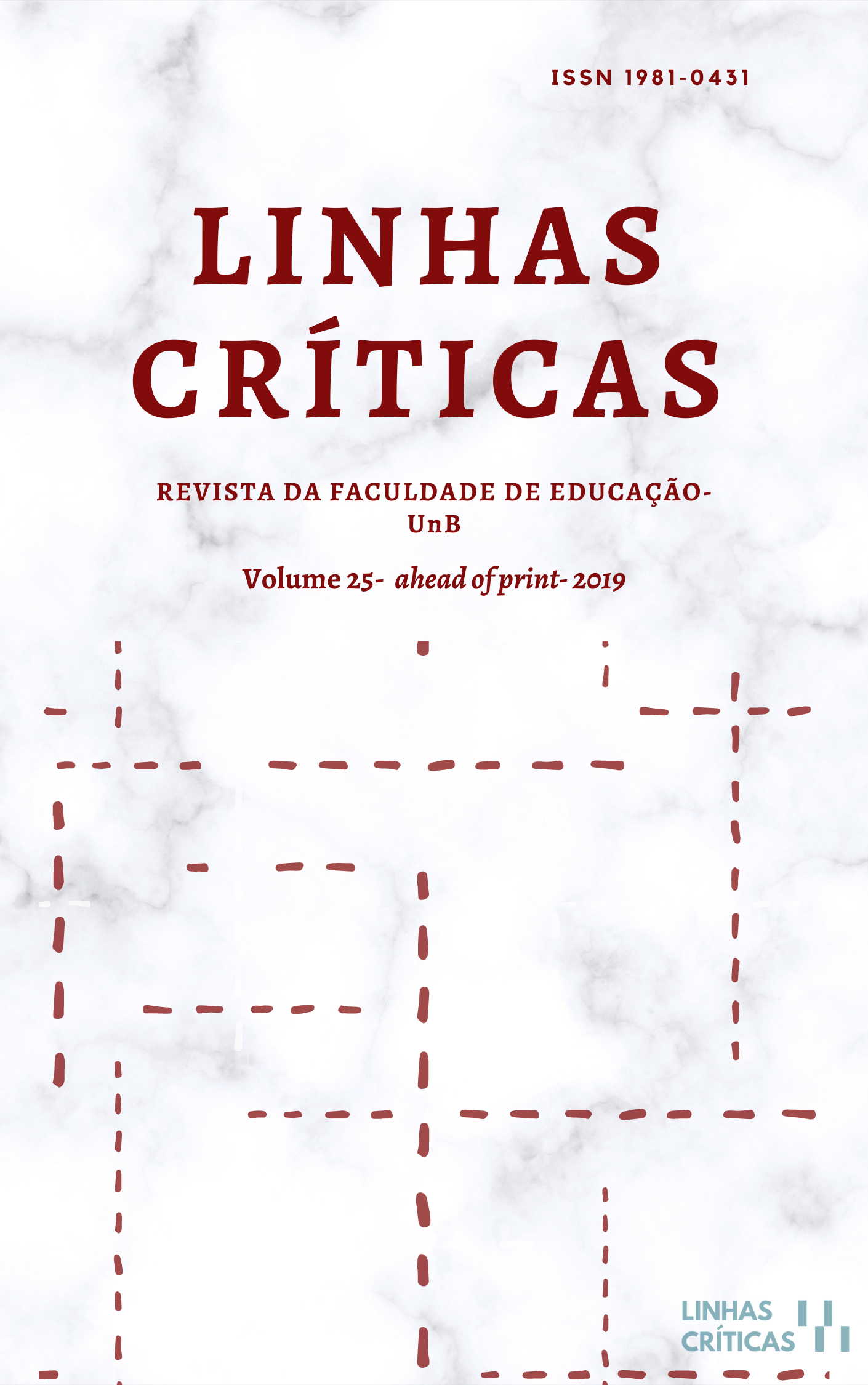Controvérsias sócio-científicas e relações de poder: desafios de sua inserção segundo futuros professores de ciências
DOI:
https://doi.org/10.26512/lc.v25.2019.21585Keywords:
Socio-scientific Controversies, Power Relations, Teacher Education, Pierre Bourdieu, Paulo FreireAbstract
Science education research has exposed the difficulty in implementing socio-scientific controversies in the classroom, particularly regarding the infrastructure and teacher training to deal with activities that go beyond scientific concepts. Several factors discourage current and future teachers working in basic education (elementary and secondary), when facing the challenge of including non-consensual topics in their science classes. Taking into account the Brazilian political situation, this research illustrates how future teachers understand their actions and challenges, when implementing socio-scientific controversies. In the context, we present a fraction of the work developed in the “We Act” Project, where we intended to research power relations perceptions throughout Pierre Bourdieu and Paulo Freire interpretations. The participants’ conceptions about power relations in schools, and as political practices, emerge as particularly relevant for what we call “supervision of the teaching profession”. Consequently, it should be recognized that the school context is constructed by social influences greater than the school and the community it belongs to.
Downloads
References
Bencze, L., & Carter, L. (2011). Globalizing students acting for the common good. Journal of Research in Science Teaching, 48(6), 648-669.
Barbier, R. (2002). A pesquisa-ação. Brasília: Plano.
Bardin, L. (2009). Análise de Conteúdo. Lisboa: Edições 70.
Bourdieu, P. (1980). O senso prático. Rio de Janeiro: Vozes.
Bourdieu, P. (1996). Sobre a televisão. Rio de Janeiro: Zahar.
Bourdieu, P., & Passeron, J.-C. (1964). Os herdeiros: os estudantes e a cultura. Florianopólis: UFSC.
Burawoy, M. (2010). O marxismo encontra Bourdieu. Campinas: Unicamp.
Carvalho, L. M., & Carvalho, W. L. (2012). Formação de professores e questões sócio-científicas no ensino de ciências. São Paulo: Escrituras.
Catani, A. M. (2013). Origem e destino: pensando a sociologia reflexiva de Bourdieu. Campinas: Mercados das Letras.
Engström, S., & Carlhed, C. (2014). Different habitus - different strategies in teaching physics? Cultural Studies of Science Education, online, pp. 1-30.
Franco, M. A. (2012). Pesquisa-ação e prática docente: articulações possíveis. In: S. C. Pimenta, & M. A. Franco (Eds.). Pesquisa em educação: possibilidades investigativas/ formativas da pesquisa-ação (Vol. I, pp. 103-138). São Paulo: Loyola.
Franco, M. A., & Lisita, V. M. (2012). Pesquisa-ação: limites e possibilidades na formação docente. In: S. G. Pimenta, & M. A. Franco (Eds.) Pesquisa em educação: possibilidade investigativas/formativas da pesquisa-ação (Vol. II, pp. 41-70). São Paulo: Loyola.
Freire, P. (2005). Pedagogia do oprimido. São Paulo: Paz e Terra.
Freire, P. (2013a). Pedagogia da autonomia. São Paulo: Paz e Terra
Freire, P. (2013b). Educação como prática da liberdade. São Paulo: Paz e Terra.
Freire, P. (1975ab). Extensão ou comunicação? Rio de Janeiro: Paz e Terra.
Linhares, E., & Reis, P. (2014). La promotion de l’activisme chez les futurs enseignants partant de la discussion de questions socialement vives. Revue Francophone du développement durable, 4, 80-93.
Pozo, J. I., & Crespo, M. A. G. (2009). Por que os alunos não aprendem a ciência que lhes é ensinada? In: J.I. Pozo; & Crespo, M.A.G. (Ed.) A aprendizagem e o ensino de ciências (Vol. 1, Cap. 1, pp. 14-28). Porto Alegre: Artmed.
Tilly, C. (2006). O acesso desigual ao conhecimento científico. Tempo social, 18(2), 47-63.
Levinson, R. (2006). Towards a Theoretical Framework for Teaching Controversial Socio-scientific Issues. International Journal of Science Education, 28(10), 12011224.
Reis, P. (2014a). Acción Socio-Politica sobre Cuestiones Socio-Científicas: Reconstruyendo La Formácion Docente y el Currículo. Uni/Pluriversidade, 14(2), 16-26.
Reis, P. (2014b). Promoting Student’s Collective Socio-scientific Activism: Teachers’ Perspectives. In: L. Bencze, & S. Alsop (Ed.) Activism Science and Technology Education (Vol. 1, Cap. 3, pp. 547-574). New York: Cultural Studies of Science Educacion.
Tripp, D. (2005). Pesquisa-ação: uma introdução metodológica. Educação e Pesquisa, 31(3), pp. 443-466.
Vittoria, P. (2011). Narrando Paulo Freire: por uma pedagogia do diálogo. Rio de Janeiro: UFRJ.
Wacquant, L. (2005). O mistério do ministério: Pierre Bourdieu e a política democrática. Rio de Janeiro: Revan.
Published
How to Cite
Issue
Section
License
Copyright (c) 2019 Revista Linhas Críticas

This work is licensed under a Creative Commons Attribution 4.0 International License.
Authors who publish in this journal agree to the following terms:
-Authors maintains the copyright and grants the journal the right of first publication, the work being simultaneously licensed under the Creative Commons Attribution License which allows the sharing of the work with recognition of the authorship of the work and initial publication in this journal.
- Authors are authorized to enter into additional contracts separately, for non-exclusive distribution of the version of the work published in this journal (eg publish in institutional repository or as a book chapter), with acknowledgment of authorship and initial publication in this journal.
-Authorers are allowed and encouraged to publish and distribute their work online (eg in institutional repositories or on their personal page) at any point before or during the editorial process, as this can generate productive changes as well as increase the impact and the citation of published work (See The Effect of Free Access).



